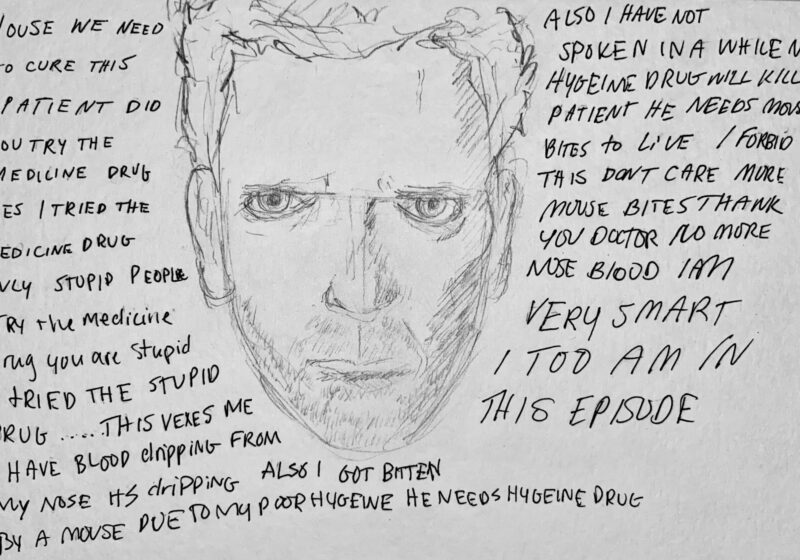On Monday, Feb. 16, a discussion titled “What Part of Jailhouse Rock Don’t You Understand?” was held in Hoyt Auditorium about the ethics and legality of file sharing. The debate was a popular event, almost filling the auditorium with students, professors and other interested viewers. Speaking at the discussion were president of the Recording Industry Association of America Cary Sherman, Provost and chair of the Technology Task Force of the national Joint Committee on Peer-to-Peer File Sharing Charles E. Phelps, special advisor to the Chief Information Officer at the University and co-founder of the Cornell Computer Policy and Law Program Marjorie Shaw, director of the Yellowjackets David Marvin, and technical counsel to Student Government Peter Ordal. UR President Thomas Jackson moderated the discussion. Sherman argued that the recording industry has been badly hurt by file sharing. “The RIAA produced 32,000 [unique CDs] last year, but that’s with a decline [in our business] of 30 percent,” he said. The RIAA has filed over a hundred lawsuits against people for allegedly illegal file sharing. Many lawsuits have targeted children, college students and people who didn’t realize that file sharing might be illegal. Ordal, a senior, disputed Sherman’s figures. “The industry is down 15 percent, not 30 percent, and 27,000 CDs were created, not 32,000 as Mr. Sherman claimed,” he said.But even so, all on the panel agreed that file sharing was undesirable, and unlicensed file sharing was illegal and wrong. “Property rights are the foundation of economic growth,” Phelps said. “[Fixing the problem of illegal file sharing] involves a change in ethical and moral behavior.”Shaw believed that the problem was not caused by wanting to break the law, but by belief that the law didn’t apply. “It’s not a change in ethics that’s needed so much of a merging of that ethic to the laws of real space,” she said. As a member of the Yellowjacket’s group, Marvin is opposed to file sharing because their CD sales have dropped a lot over the past year. He had his own opinion about file sharing. “I feel it’s caused by a lack of pride – in peoples’ work, in our country, and so on,” he said. “[Illegal file-sharing] won’t end when the RIAA sues enough people, it will end when people decide that what they’re getting is worth paying for.”Even Ordal, the only panelist with no vested interest in the recording industry or the university’s legal standing, said, “I don’t feel that file-sharing is or should be legal.”Some felt that the discussion should have been more balanced. “I thought it was good, but it was a little one-sided… Peter Ordal generally defended the ideas of file-sharing, but he didn’t really favor it,” junior Dorothy Bauch said. Bauch lives on the Computer Interest Floor. Bauch felt that the other side of the debate should have been better represented. “We co-sponsored the talk, and I think a lot of people on the floor are pro-file-sharing, at least until a better option is available,” she said. “Peter [Ordal] seemed timid, and Dave [Marvin] seemed like he wanted to say more but couldn’t,” said Jim Mullen.Peter Sherman, the son of Cary Sherman, also attended the debate. “It was very productive and informative,” he said. He, too, expected more conflict. “I’m surprised there weren’t more attacks on the industry,” he said. Cards were given to the audience for them to write questions on. After a few simple questions from Jackson himself, he asked the panelists questions from the audience. However, some thought that not all opinions from the audience were heard either. “I would have liked there to be more interesting questions asked, but the ones that were brought up were good,” said Joe Toscano, junior and chair of CIF. Several people were curious about the prices of CDs. One student asked, “There is apparently no reason why CDs cost more than other media, and it is well documented that labels take a larger cut than ever before… Where is the justification for inflation of CD prices?”Sherman did not give a clear answer to this question. He said, “People have a sense of entitlement to any music they want, [but they believe record companies have more sources or revenue than they actually do.]” However, he never actually explained why CD prices are higher than those of other media. But on the whole, the discussion was held to be a success. “I thought the balance was pretty good,” Toscano said. “It was nice to have student representation.”Shaw felt that the debate itself showed that a lot of progress had been made on the issue already. “Six months ago all we heard from the RIAA was, ‘we can’t compete with free,’ and now they’re suggesting new business models,” she said.
birds
Research at Rochester: Windows of opportunity? SMASH the CRASH and bird collision prevention
A new study at UR is helping to keep birds on campus safe from window collisions.
calendwatch
Housepital-ity
I fear I may have started this job off on the wrong foot. Right off the bat, when I stumbled into the reception of URMC, I committed the critical silly of asking where to go.
Class Council
Students’ Association releases Fall 2024 election results
With new additions to the 2028 Class Council and Senate, UR’s Students Association has welcomed new members as a result of the Fall 2024 Elections.



